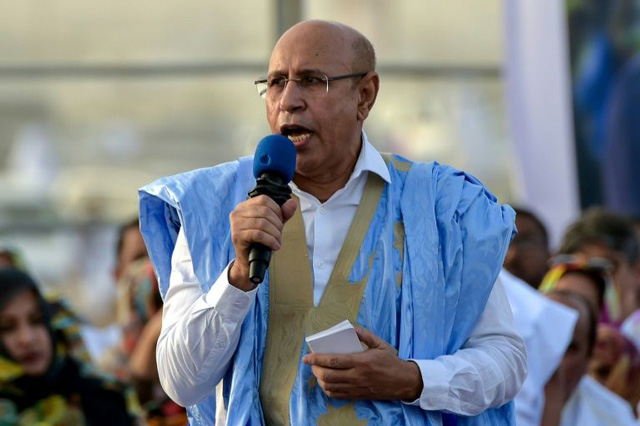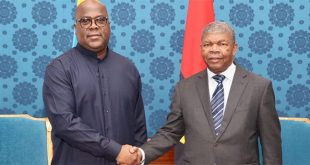
Nouakchott, Mauritania | AFP | Ex-general Mohamed Ould Ghazouani was declared the official winner Monday of presidential elections in Mauritania that opposition candidates claim were unfair.
The Constitutional Council, the final authority on Mauritania’s founding law, rejected an opposition challenge and confirmed the CENI electoral commission’s announcement that Ghazouani had won the June 22 poll with an absolute majority of 52 percent.
He will on August 2 officially take over the presidency from close ally Mohamed Ould Abdel Aziz, who is stepping down after serving the maximum two five-year terms.
On Friday, Ghazouani hailed the beginning of “democratic pluralism” in the conservative West African country. The election represented Mauritania’s first democratic transition of power since independence from France in 1960.
But on Sunday night, the four opposition candidates denounced alleged election fraud.
There were some polling stations where Ghazouani officially “won 100 percent or more” of the vote, claimed candidate Biram Ould Dah Ould Abeid, who officially received just over 18 percent of the vote.
Of the other main opposition candidates, former prime minister Sidi Mohamed Ould Boubacar received 17.87 percent and journalist Baba Hamidou Kane 8.7 percent — almost identical scores to what the CENI had released provisionally the day after the vote.
The opposition’s own analysis showed Ghazouani could not have taken more than 48.5 percent, the candidates told journalists at an opposition campaign office reopened after it was closed by police last week.
“We reject these results and consider the constitutional council, which has followed the CENI, has only deepened the crisis,” said Ould Abeid.
He urged the authorities “to take the initiative of (holding) an inclusive dialogue to exit the crisis.”
Claiming hundreds of people were arrested in a crackdown on post-poll protests, the opposition had lodged an appeal to void the result with the nine-member Constitutional Council.
– ‘Insufficient proof’ –
That challenge was rejected on Monday for “insufficient proof,” according to the council, whose premises have been guarded by military vehicles since last week’s CENI announcement that Ghazouani had won.
“The electoral system in Mauritania has improved much,” and “continues to improve with each election,” said council president Bathia Mamadou Diallo.
Following the vote, police raided opposition party headquarters, clashed with opposition supporters, and announced last week they had arrested more than 100 foreigners accused of working with domestic opposition parties to destabilise the country through protests.
There was also a three-day internet blackout and partial web disruption remains.
Rights groups accuse Mauritania’s government of restricting freedom of expression and assembly, and call for the nation to do more to counter violence against women and slavery, which persists despite its official abolition in 1981.
Ghazouani campaigned on the themes of continuity, solidarity and security, and has been congratulated on his election by countries including France, Morocco, Algeria, Mali and Saudi Arabia.
“The security of the country comes before everything else,” the former armed forces chief (2008-2018) told a political rally on the last day of campaigning, his face plastered countrywide on campaign posters, caps, T-shirts and even the bodywork of cars.
Since 2011, jihadist attacks in Mauritania have stopped. This degree of security in the Sahal region nation, previously a frequent target of jihadists, is widely attributed to Ghazouani’s firm guidance of the defence force.
“He is very methodical and he’s highly appreciated within the Mauritanian army. He is absolutely not anybody’s puppet,” noted Alain Antil, a specialist at the French Institute of International Relations.
During the campaign, Ghazouani promised to “end inequalities and disparities among the different components of society”.
Mauritania suffers deep divisions between the long-dominant Arabic-Berber community, the Haratin caste descended from slaves, and the black African population.
Ghazouni himself hails from Boumdeid, traditional base of a powerful Sufi Muslim brotherhood, the Shadiliyya, and belongs to the wealthy and influential Ideiboussat tribe.
The conservative Saharan country, with a population of less than five million, has a history of military coups, the most recent in 2008.
 The Independent Uganda: You get the Truth we Pay the Price
The Independent Uganda: You get the Truth we Pay the Price


